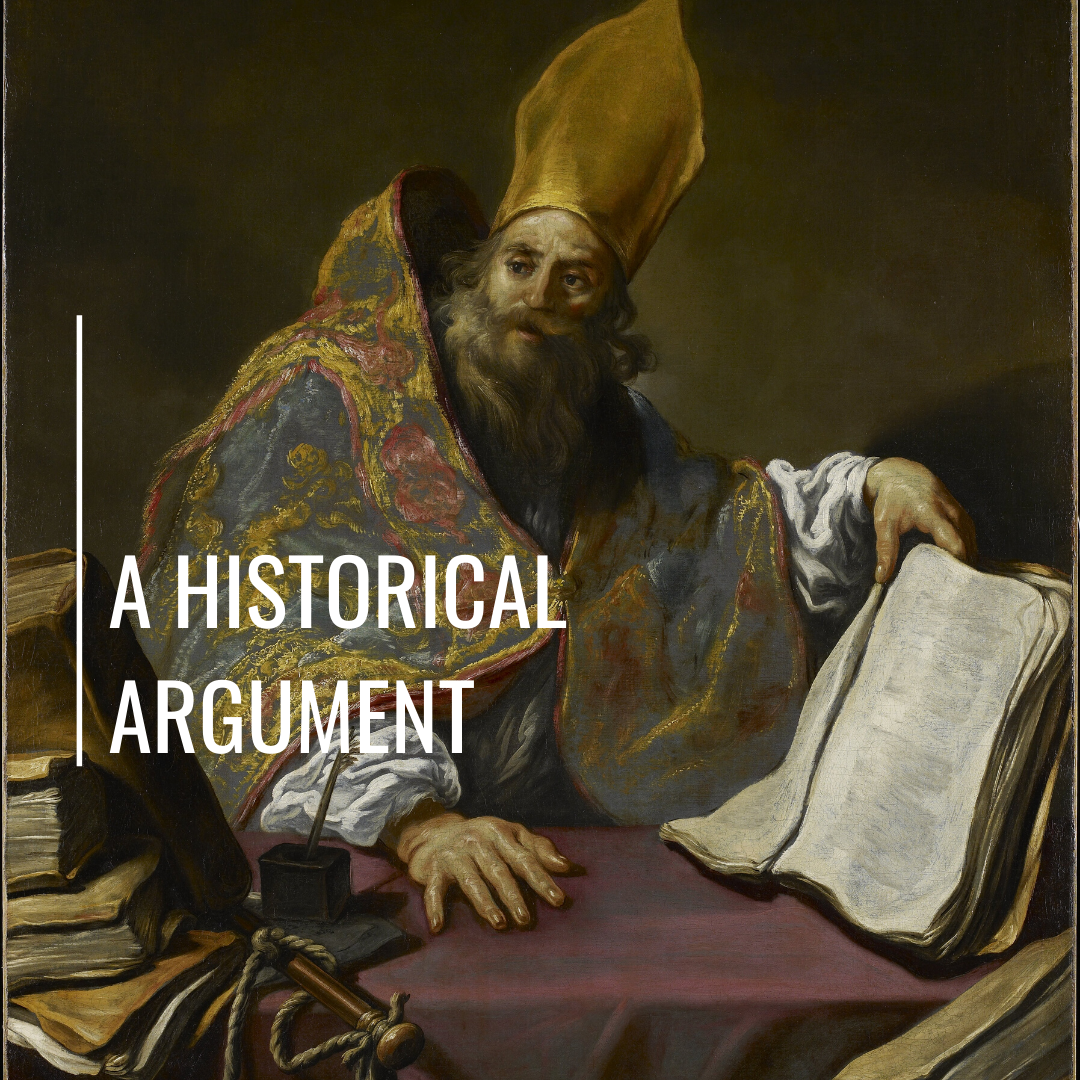#2 A Historical Argument
In a previous post, I argued that the Bible supports a church-based model for pastoral formation. In this article, the attention turns to church history.
While the Bible is unchanging, the church wrestles with the application of its truth in an ever-changing world. Throughout history this has been an exercise requiring wisdom and discernment. With regard to pastoral formation, as with many practical issues the church faces, to suggest that there is a single biblical model is overly simplistic. There are unnegotiable principles, but there is room for flexibility in the wisest application of those principles in a given context. For this reason, church history can supply case studies in how godly men and women have sought to faithfully apply Biblical truth to the life of the church.
How then has the church prepared pastors?
It is noteworthy that there were no seminaries (theological institutions dedicated to the preparation of new clergy) during the first 15 centuries of the Christian Church, and it was only in the 16th century that both Catholics and Protestants began to require formal studies as a prerequisite for ordination.[1] The first formal schools developed by the Church were for the catechumenate in order to teach sound doctrine to the new converts. The school of Alexandria is a famous example. Other contexts for theological study developed throughout the centuries such as the monastic and cathedral schools of the Middle Ages, and eventually universities. Clergy, of course, studied the Bible and theology in these contexts, however the schools were not programs designed for pastoral formation.
The relationship between theological studies and pastoral ministry was apparently not so well defined in the first centuries of the church’s history. Some pastors, such as Augustine and Ambrose, were awakened to the need for deeper and systematic studies of theology upon entering the pastorate. The demands of the ministry of the Word and the responsibility for sound doctrine compelled them. Many have observed in the writings of Augustine, his development from roots in Neo-Platonism toward a more biblically grounded theology over time, certainly due to his deepened understanding of Scripture.
Nevertheless, we should not conclude that all early-church pastors were simply self-taught. Indeed notable examples exist of men thrust into ministry without any preparation, sometimes against their own will. However, there is evidence of a much more intentional process of pastoral formation taking place in churches. An excerpt from a letter from Bishop Cyprian of the third century gives us a rare window into pastoral formation in the ancient Church:
Know therefore that I have ordained Saturus as a reader and Optatus as a confessor, both of whom, by common agreement, we had been preparing to be part of the clergy, since we have entrusted Saturus more than once with the reading on Easter, and later, as we examined carefully those who were to be readers and the teaching presbyters, we ordained Optatus as a reader to serve among those who instruct catechumens, and we have examined all the qualities that must abide in those that are training for the clergy.[2]
Here we see the functioning of what could be called an apprenticeship or pastoral training residency, where two men, Saturus and Optatus, are being prepared for the clergy (to be elders or “presbyters”). Lesser but nonetheless important responsibilities in the church were entrusted to them (“reader” and “confessor”) while they were accompanied by church leaders who were especially attentive to the necessary qualities to serve as pastors. This model follows in general terms the pattern established in the New Testament epistles. In a previous article, that pattern was described as follows:
- Identification by the active elder(s) of spiritually mature men who wish to be elders and who possess the necessary gifts and skills (1 Tim 3.1-7; Tit 1.5-9).
- The teaching of sound doctrine so that it can be reproduced by apprentices in the teaching and correcting of others (2 Tim 2.2; Tit 1:9).
- Progress in the practice of pastoral ministry under the guidance of more experienced elders, focusing on purity of life and doctrine throughout the process (1 Tim 4.11-16; 1 Pet 5.1-4).
A complete history of pastoral formation is beyond the scope of this article, but the brief summary shows the early church engaging in pastoral formation practices very much aligned with the elder-led church-based patterns of the New Testament. Seminary education or even formal theological education (beyond the essential doctrines that all catechumens were required to learn) were not a prerequisite for pastoral office until around the time of the Protestant Reformation, though pastors did engage in continuing theological education in a variety of contexts.
While far from supporting a one-size-fits-all model, I suggest that this historical glance encourages us all the more to ground pastoral formation in the local church, while still taking advantage of a variety of contexts and opportunities for theological and biblical study before and during ministry. Outside institutions can be wonderfully used of God, even in the lives of pastors, but they are not essential to the task of pastoral formation. Furthermore, the best conceptions of church-based pastoral formation must not see themselves as anti-education, rather as environments where men grow in their theological and biblical acumen, even as they engage in practical ministry.
[1]González, Justo L. The History of theological education.Nashville: Abingdon, 2015 (p 117).
[2]Cyprian, Epistle 29 quoted in González, Justo L. The History of Theological Education.Nashville: Abingdon, 2015 (P 5).



